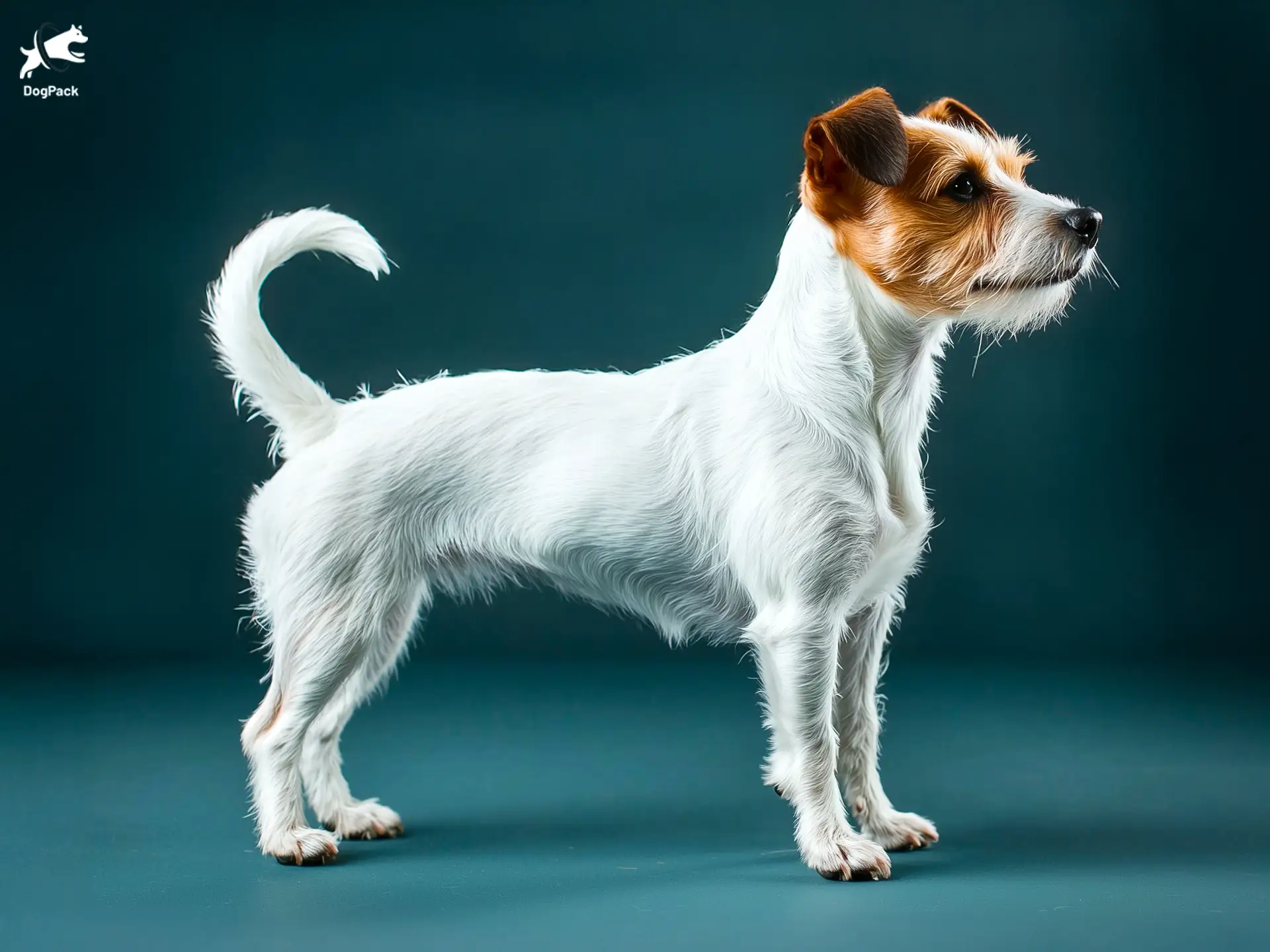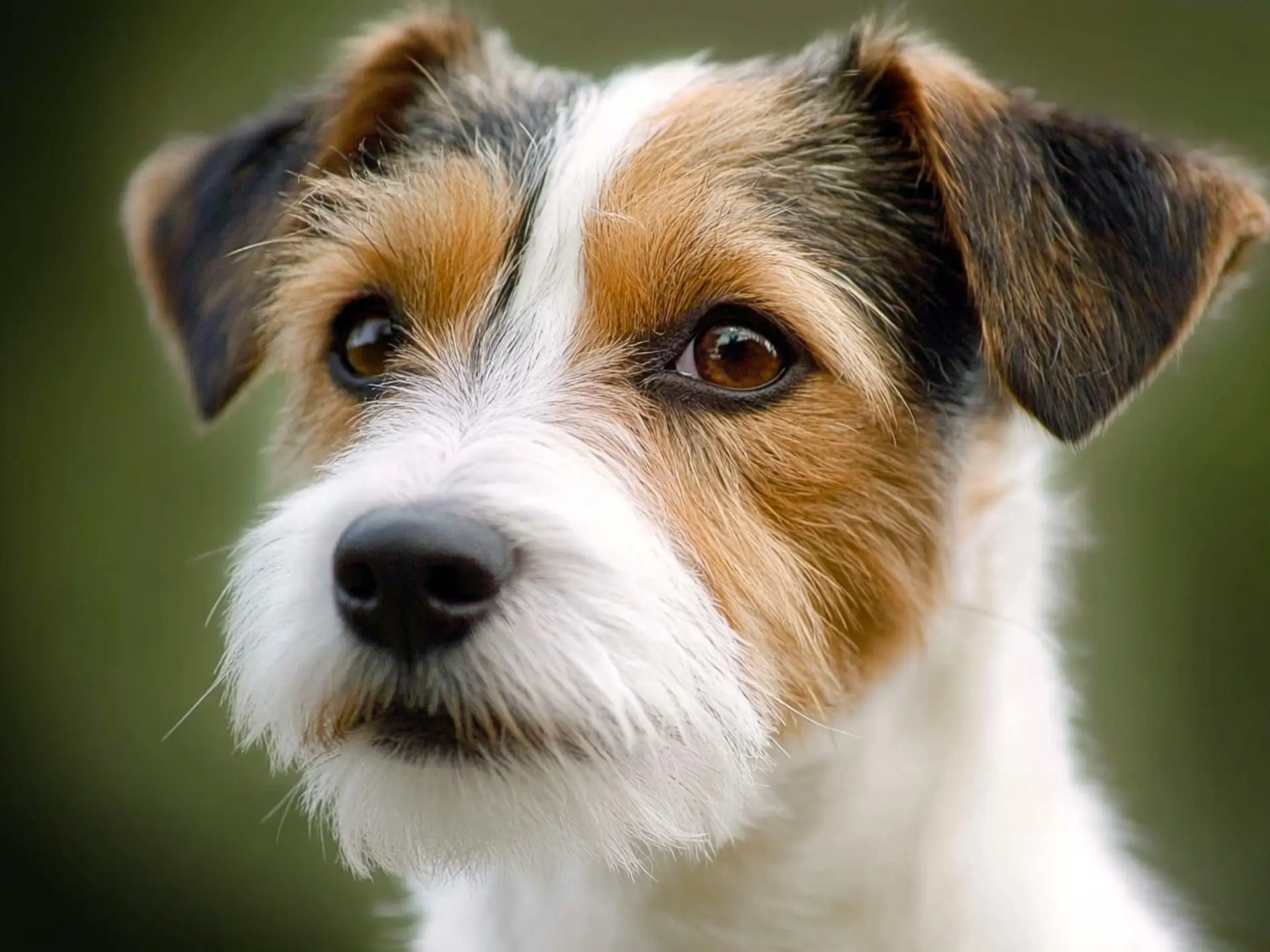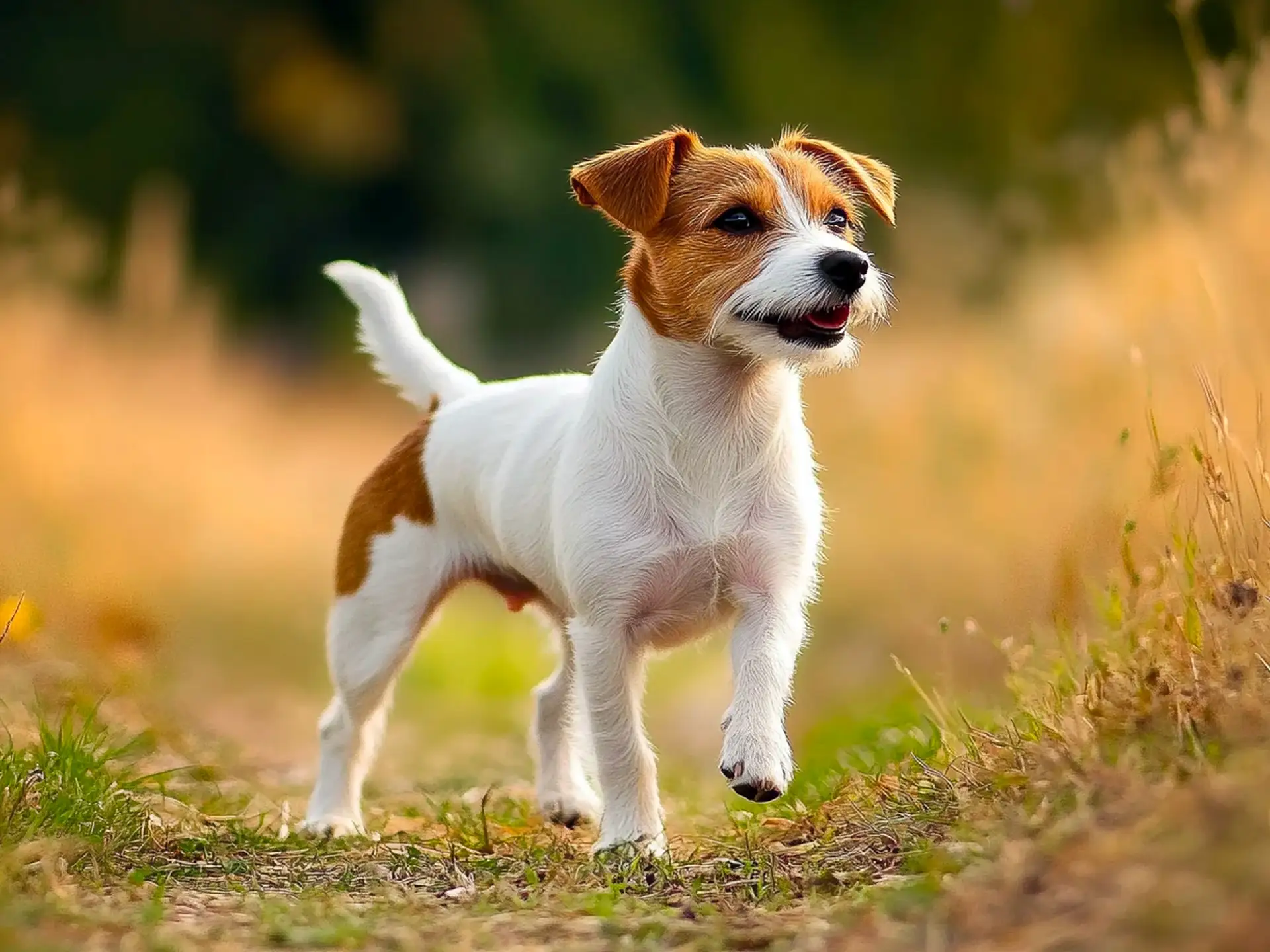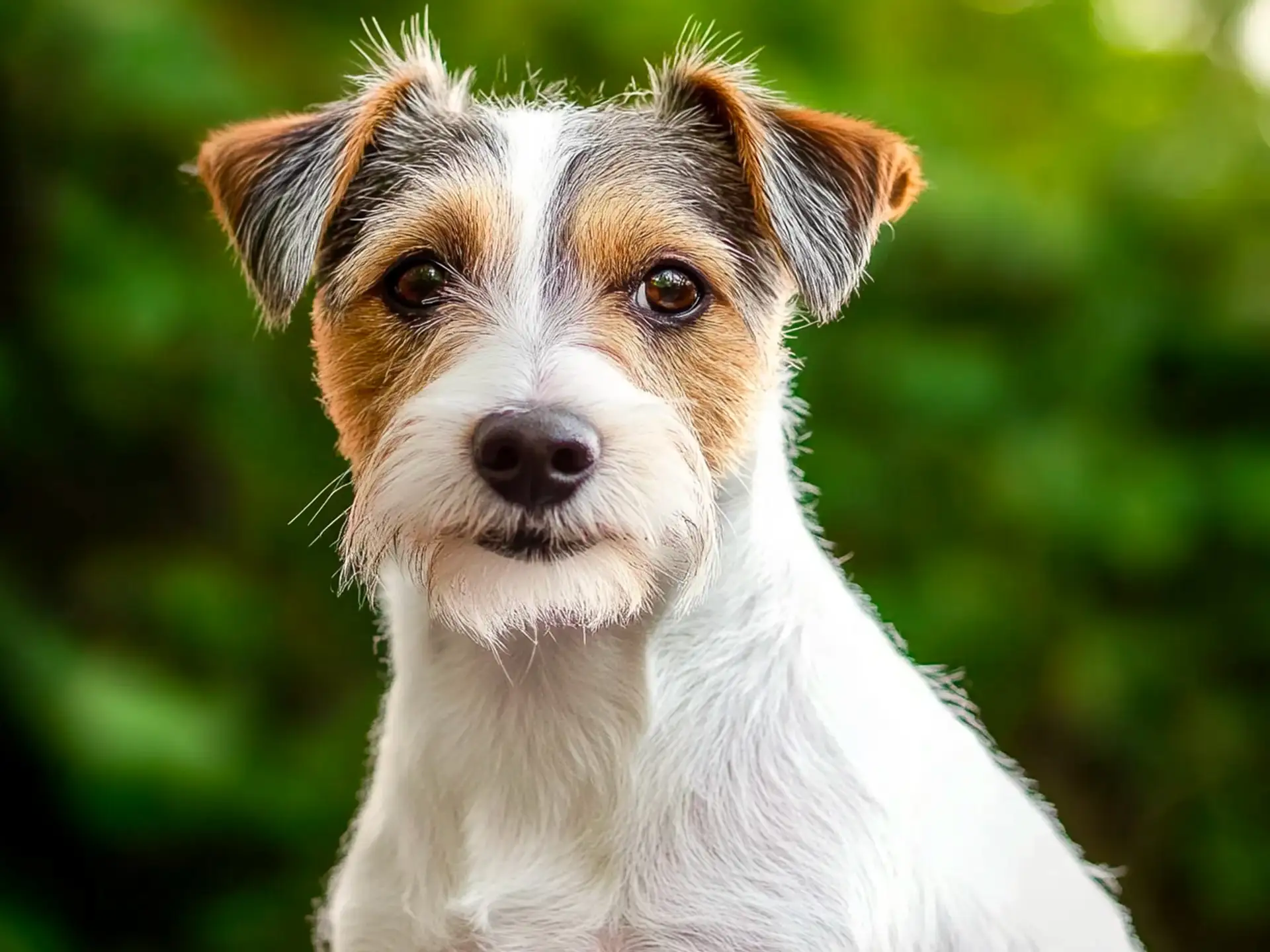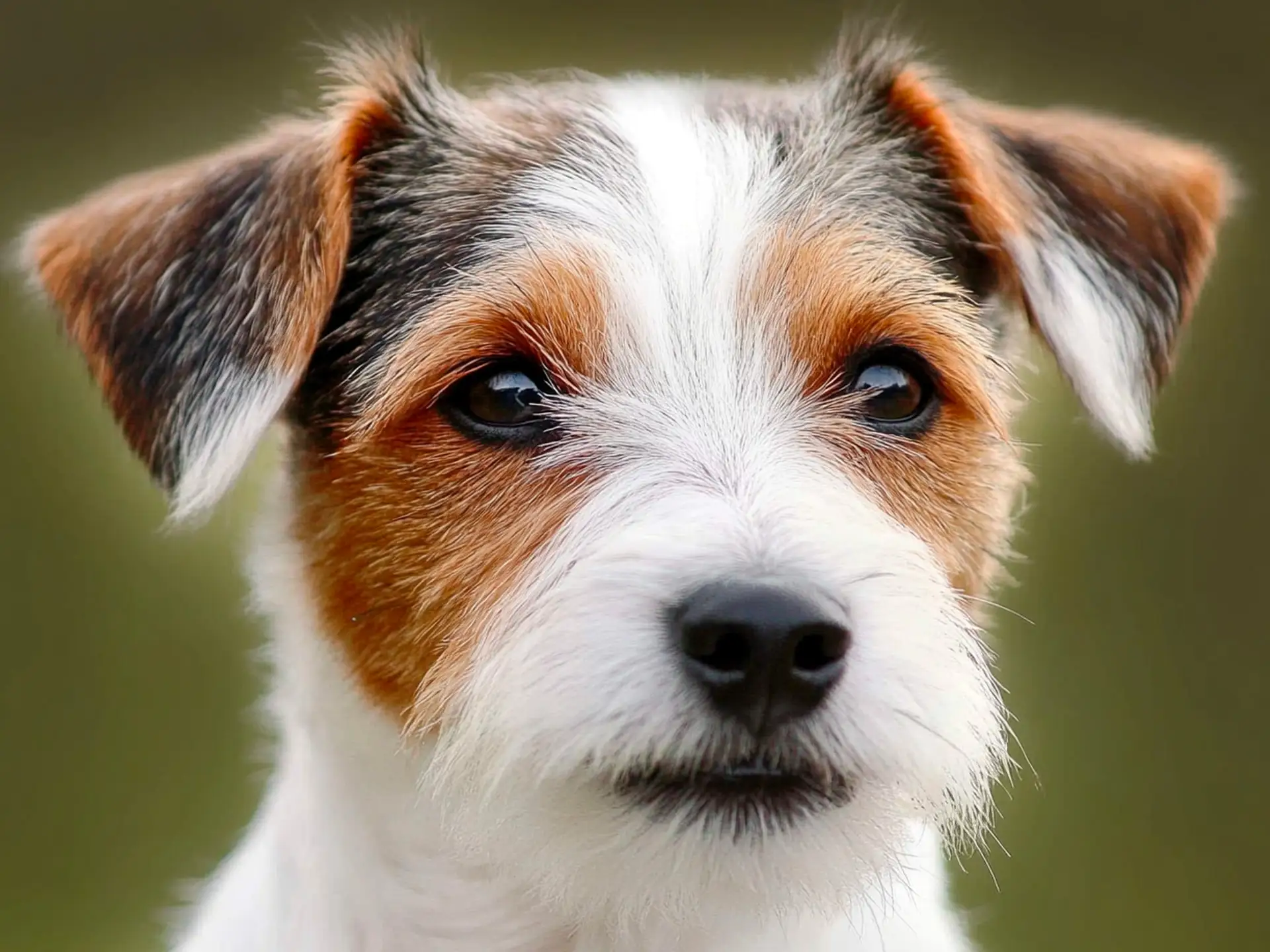Parson Russell Terrier Dog Breed Info & Overview
Meet the spirited Parson Russell Terrier, a small yet fearless dog bursting with personality. Originally bred for fox hunting, this agile companion thrives on adventure and loves to keep busy. Their bold demeanor and sharp mind make them stand out, capturing hearts wherever they roam. Though small in stature, they carry themselves with unwavering confidence, ready to tackle new challenges.
Characteristics
Pictures
Breed History
In the mid-1800s, Reverend John “Jack” Russell had a vision for a swift and bold terrier capable of assisting on fox hunts in the English countryside. He meticulously refined the lines to create a hardy, agile breed adept at flushing foxes from their dens. The result was a tough little dog that embodied stamina and relentless determination.
Over time, the bloodlines of these spirited canines evolved, and enthusiasts worked diligently to preserve their distinct traits. Their tenacity and courageous spirit made them a favorite among hunters and country folk alike. From farmland to family homes, they demonstrated an uncanny ability to adapt, making them beloved by those seeking a confident and capable companion.
Official recognition came when the breed gained popularity beyond its hunting roots, prompting kennel clubs to formalize breed standards. The Parson Russell Terrier name distinguishes this dog’s leggy build and purposeful design from its close cousin, the Jack Russell Terrier. Today, this plucky terrier remains a testament to Rev. Russell’s original vision, delighting owners worldwide with its spirited nature.
Temperament, Personality
Spend a day with this lively terrier, and you’ll likely find yourself giggling at its playful antics. They’re confident to the core and often approach new situations as if everything is an exciting adventure. Quick-witted and alert, they excel at problem-solving and can sometimes outsmart their humans, making life with them both entertaining and unpredictable.
When socialized from an early age, these dogs typically get along well with children, though their exuberance may be overwhelming for very young kids. Teaching them boundaries and providing consistent guidance ensures a harmonious family dynamic. Strangers are met with curiosity rather than fear, though a Parson Russell Terrier will always stand up for itself if provoked.
Despite their penchant for digging holes or chasing after small critters, they’re incredibly loyal companions that thrive in a loving home. Early training can help them curb any unruly behaviors, especially since they’re eager to please. With a sense of humor and a dash of patience, owners find these feisty canines transform into the ultimate devoted sidekick.
Physical Characteristics
Built for agility, this terrier boasts a slightly longer leg and a strong, square-shaped body. Their compact yet athletic frame allows them to run, jump, and pivot with impressive speed. A moderate stop on the head gives them that keen, bright expression, while the ears fold forward, showcasing their curious, always-ready-to-explore outlook on the world.
Coats come in smooth or broken varieties, both offering a degree of protection against the elements. Predominantly white with black, tan, or tri-color markings, they’re designed to remain visible against earthy terrains. Although slightly taller than the Jack Russell, the Parson Russell Terrier still embodies the same feisty confidence, just in a slightly more elongated package.
Females and males typically range between 13 to 15 inches in height, with a lean, muscular build that rarely tips beyond 17 pounds. Despite their small stature, they carry themselves with grace and a dash of swagger. Combined with a set of inquisitive, dark eyes, their appearance perfectly reflects their energetic and outgoing nature.
Health Issues
Like many terrier breeds, these dogs are generally robust, but they can inherit certain conditions. One potential concern is patellar luxation, where the kneecap can slip out of place, causing discomfort if not treated. Regular veterinary check-ups, along with keeping them at a healthy weight, can help manage and prevent joint-related issues from escalating.
Eye conditions, including lens luxation and cataracts, may appear in some lines. It’s wise to perform routine eye exams and watch for any changes in vision. Additionally, dental care is crucial, as small breeds can be prone to tartar buildup. Maintaining a consistent oral hygiene routine reduces the risk of periodontal disease and other complications.
Overall, a Parson Russell Terrier tends to have a sturdy constitution, provided it’s given the right diet, exercise, and preventive care. Genetic testing when selecting a breeder also helps reduce the likelihood of inheriting serious ailments. Monitoring your dog’s daily habits, from energy levels to appetite, is key to catching potential problems before they become more serious.
Grooming Needs
Thanks to their short or lightly broken coats, these terriers are relatively low-maintenance when it comes to grooming. A weekly brush or comb-through is usually enough to remove loose hairs and keep the coat looking tidy. During shedding seasons, a little more attention may be required, especially if your pup has a slightly thicker, wiry texture.
Bathing should be done as needed, typically every few weeks or if they’ve had an adventurous romp in mud or brambles. Otherwise, their coat stays fairly clean with a simple wipe-down. For a broken coat, some owners choose to hand-strip rather than clip, preserving the coat’s texture and color vibrancy while minimizing overall shedding.
Keeping a Parson Russell Terrier fresh-faced also involves regular nail trims, especially since long nails can impede its energetic gait. Ears should be checked and gently cleaned, preventing wax buildup and infections. By staying on top of these routine tasks, owners ensure their lively terrier looks and feels its best, ready to tackle the next daily adventure.
Exercise Requirements
As a high-energy breed, these dogs thrive on daily activity that challenges both mind and body. A brisk walk might be a good start, but they’ll appreciate more interactive pursuits like agility training or fetch. Without enough stimulation, they can become bored and might start digging, barking, or finding their own (often mischievous) ways to pass the time.
Because of their hunting background, they love games that let them chase, track, or sniff around. Hide-and-seek in the backyard or puzzle toys can keep them entertained for hours. Just be prepared for that terrier tenacity—once they set their sights on something, they’ll put their whole heart into pursuing it with boundless enthusiasm.
For active families, a Parson Russell Terrier can be the ultimate workout buddy, always ready to tag along on adventures. Whether it’s a weekend hike or a backyard obstacle course, variety is key. Regular exercise not only keeps them in shape but also helps channel their seemingly endless energy into positive outlets.
Training Tips
Training a bright terrier can be both rewarding and challenging. These dogs absorb lessons quickly but might get bored with repetitive tasks. Short, varied sessions typically yield the best results. Positive reinforcement methods—treats, praise, and play—encourage them to stay focused. When faced with stubborn moments, patience and consistency are your secret weapons.
Early socialization is a must, helping them embrace friendly encounters with new people, pets, and environments. Puppy classes offer a structured way to introduce good manners and basic commands. Terriers have an independent streak, so establishing you as the leader (in a firm but gentle manner) prevents them from taking charge of the household.
Keep sessions upbeat to tap into the Parson Russell Terrier’s innate curiosity and eagerness. Incorporating puzzle toys or hide-and-seek exercises can sharpen their problem-solving skills while reinforcing commands. Remember, each success builds on the last, so celebrate small victories along the way. With a creative approach, you’ll cultivate a well-mannered companion who relishes learning.
Nutrition, Diet
Because they’re so active, these terriers need a nutrient-dense kibble or raw-based diet that supports muscle maintenance and sustained energy. Look for formulas with around 25–30% protein and moderate fats, which help fuel their busy lifestyle. Avoid overly high-calorie feeds, as they can put extra strain on joints if the dog starts to pack on unnecessary pounds.
Splitting meals into two portions per day often suits their high metabolism. For a healthy adult, roughly one cup of quality dog food in the morning and another cup in the evening can keep them satisfied—adjusting slightly based on activity level and size. Monitor their weight monthly to ensure they stay lean and ready for action.
If you notice a Parson Russell Terrier losing stamina or looking too thin, consider introducing nutrient boosters like fish oils or joint-support supplements. Treats should be factored into daily calorie intake; these clever pups can quickly learn to beg if overindulged. Always consult with a veterinarian for tailored advice, as individual dietary needs can vary.
Adoption, Breeders
When searching for a healthy, well-adjusted Parson Russell Terrier, it’s crucial to do your homework. Reputable breeders prioritize responsible mating practices, health testing, and early socialization. They’ll provide medical records, lineage details, and a comfortable environment where puppies learn vital social skills from their mother and littermates. Avoid sources that can’t verify health clearances or provide transparency about living conditions.
For those leaning toward adoption, specialized rescues like Russell Rescue often have Parson Russell Terriers in need of loving homes. Shelters may occasionally house this breed, too, although they might be labeled simply as terriers. Adopting an older dog has its perks—many are already house-trained and calmer, making it easier to integrate them into your routine.
If you’re seeking more insights on the breed, the Parson Russell Terrier Association of America offers guidance on breed standards, training, and responsible ownership. Connecting with fellow enthusiasts through breed clubs or online forums can help you learn from experienced owners. Whether you adopt or buy, thorough research ensures a well-matched, lifelong companion.
Family Pet?
In a bustling household, these outgoing canines often relish the constant activity. They’ll happily follow kids around, ready to engage in spirited play. However, supervision is essential with younger children, as the terrier’s excitement can lead to roughhousing. Teaching both kids and dogs the boundaries of safe interaction helps create a peaceful, fun environment for all.
Given their strong prey drive, households with smaller pets, like hamsters or guinea pigs, might face some challenges. With proper introductions and consistent training, many families find they coexist just fine. Early socialization shapes their attitudes toward other animals, making them more accepting of feline housemates or canine pals, provided each has personal space and respect.
Overall, a Parson Russell Terrier can bring laughter and lively energy to any family dynamic that appreciates an active lifestyle. They thrive on involvement in daily routines and love being part of group adventures. If your home embraces a bit of playful chaos, you’ll likely find that these terriers fit right in and become cherished members of the household.
Right For You?
Active individuals who enjoy outdoor pursuits and mental challenges will find a willing partner in this spirited terrier. Their eagerness to chase, explore, and investigate means they need a secure yard and plenty of planned activities. If you’re looking for a couch potato or a dog content with minimal interaction, this breed’s endless zest might not be the best match.
Busy owners who are frequently away for extended hours may come home to a bored terrier venting its frustration on furniture or the trash bin. Regular exercise, puzzle toys, and a reliable routine go a long way in managing their energy. While they can adapt to smaller living spaces, they truly flourish in environments that offer outlets for their curiosity.
For those willing to invest time in training, play, and companionship, a Parson Russell Terrier offers unwavering loyalty and comedic charm. Their bold demeanor suits families or individuals seeking a canine co-adventurer. Before deciding, consider whether your lifestyle aligns with their energetic spirit, ensuring a happy, fulfilling relationship for both you and your four-legged friend.
Conclusion
Lively, inquisitive, and armed with a heart full of courage, this terrier can be an ideal companion for those ready to embrace its unstoppable spirit. From fox hunts of old to modern-day agility courses, the Parson Russell Terrier has proven its adaptability and devotion time and again. Yet, they thrive best with owners who understand their need for both mental and physical challenges. By offering consistent training, ample play, and a loving environment, you’ll be rewarded with a loyal partner that brightens every day with enthusiastic tail wags. If you’re prepared to match their energy, don’t be surprised if you find yourself laughing at their endless antics—and loving every moment.
FAQs
-
What is the difference between a Parson Russell Terrier and a Jack Russell Terrier?
The Parson Russell Terrier is taller and more square-proportioned, while the Jack Russell Terrier is shorter and more compact. Parsons were bred for fox hunting with longer legs for endurance, whereas Jack Russells were developed for burrowing and working in tighter spaces.
-
How strong is the prey drive of a Parson Russell Terrier compared to other terriers?
The Parson Russell Terrier has an exceptionally high prey drive, even among terriers. Originally bred to hunt foxes, they have a strong instinct to chase small animals like squirrels, rabbits, and even household cats. Secure fencing and consistent recall training are essential.
-
Is the Parson Russell Terrier suitable for first-time dog owners?
The Parson Russell Terrier is not the easiest breed for beginners. Their high energy, intelligence, and strong willrequire experienced handling. Without firm training, they can become stubborn, vocal, and destructive. However, with proper socialization and activity, they make loyal and entertaining companions.
-
Can a Parson Russell Terrier be trained for dog sports like agility and flyball?
Absolutely! The Parson Russell Terrier excels in agility, flyball, and even earthdog trials due to their speed, intelligence, and jumping ability. They thrive in activities that provide both mental and physical stimulation, making them a top competitor in canine sports.
-
Do Parson Russell Terriers get along with other dogs?
Parson Russell Terriers can be territorial and assertive with other dogs, especially of the same sex. Proper early socialization helps them get along in multi-dog households, but they may show dominance or aggression toward unfamiliar dogs. Supervised introductions are recommended.
Breed Ratings
The Parson Russell Terrier is exceptionally sharp, quickly mastering tasks and commands with unwavering focus and boundless curiosity.
Count on daily antics and spirited games, as this breed thrives on fun, bringing a contagious, joyous energy to any environment.
With a history of fox hunting, they boast incredible stamina and require regular, vigorous activities to stay mentally and physically content.
A short or lightly broken coat means moderate shedding, but weekly brushing can keep fur under control and your floors relatively hair-free.
Bred to chase foxes, they have a natural instinct to pursue small animals, making vigilance essential around pets like hamsters or rabbits.
Their coat needs minimal brushing, and occasional bathing suffices, though broken coats may require hand-stripping for best results.
They learn fast, but a stubborn streak can emerge. Positive, consistent training taps into their eagerness to please and quick thinking.
Extended solitude can lead to boredom and mischief. A balanced schedule with ample stimulation helps reduce separation-related stress.
They’ll bark to alert or release pent-up energy, but early training and sufficient exercise can help manage vocal tendencies.
Rarely a drooler, this terrier keeps things tidy, making them relatively slobber-free compared to many other active breeds.
They typically get along with friendly dogs, but their assertive nature can spark conflicts. Proper socialization is key to harmony.
Generally robust, but occasional breed-specific issues like eye or joint problems may arise. Regular veterinary care ensures long-term well-being.

